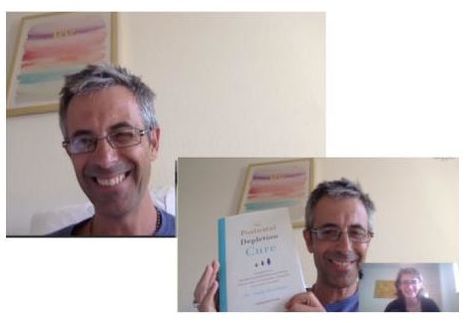|
I don't know about you, but subconsciously I've been looking for this word - matrescence - and the social movement it will bring, for a long time.
Matrescence is the "time of mother-becoming", as defined by anthropologist, Dana Rafael back in the 1970's in her essay "Matrescence, Becoming a Mother, A New/Old Rite de passage". How is it this much needed term has taken so long to enter common parlance? Why is it when pregnant, we don't speak of ourselves as 'going through matrescence' and spend our pregnancy preparing for this great transition when the baby arrives? Feminist motherhood writers such as Andrea O'Reilly would have a lot to say on the reasons behind this, but in this piece, I'm keen to simply be a part of raising awareness of the term matrescence. Why? Once we have a name for an issue, it makes it so much easier to start addressing it.
Dr Oscar Serrallach holds a similar passion for raising awareness of matrescence and the need for support for it, because he sees most women across multiple generations have suffered from a lack of awareness, and therefore a lack of support for this profound transformation of women.
Oscar got involved in this work through witnessing Caroline, his partner and mother to his three children, go through her own transformation and subsequent depletion of her health. He also saw mothers coming through through his medical practice literally worn down to a mere shadow of their former selves by the hardship of insufficiently supported parenting. This wearing down we have witnessed in mothers of young children, and perhaps experienced in ourselves, leads to years of depletion, "postnatal depletion" as Oscar calls it, where a woman suffers physically, mentally, emotionally, creatively, spiritually. "Like adolescence, matrescence needs support" says Oscar. This transitional period holds within it the potential for a woman to forge a new identity for herself and gain new insights in the world and her place in it. However to achieve fully fledged motherhood, a woman needs time and support to integrate her birthing and postnatal experiences into her new role. Catch my interview with Oscar about Matrescence and postnatal depletion below. Hormonal Psychiatry
The only part of my interview that couldn't fit into our national network podcast is Oscar's discussion of hormonal psychiatry, a burgeoning field that practitioners such as Dr Kelly Brogan are championing. Oscar cited a study of four severely depressed postnatal women who experienced rapid recovery after a 60 hour infusion of Brexanolone, which is related to the hormone allopregnanolone. This hormone is produced by the placenta, along with more than 200 hormones, and gaining a lot of interest in circles where perinatal depression is being researched and treated.
Podcast references
Other references on the changes that occur during Matrescence
Oscar also discusses the "massive upgrade" that happens to women's brains as a result of pregnancy, birth and the postpartum period, and some of the research for this is listed below.
By Sally Cusack
0 Comments
Leave a Reply. |
Details
NE PLUS ULTRA
AuthorsThe authors of this segment are varied, each post will indicate the author of that particular post. For more information about our team, visit here Archives
February 2019
Categories |



 RSS Feed
RSS Feed